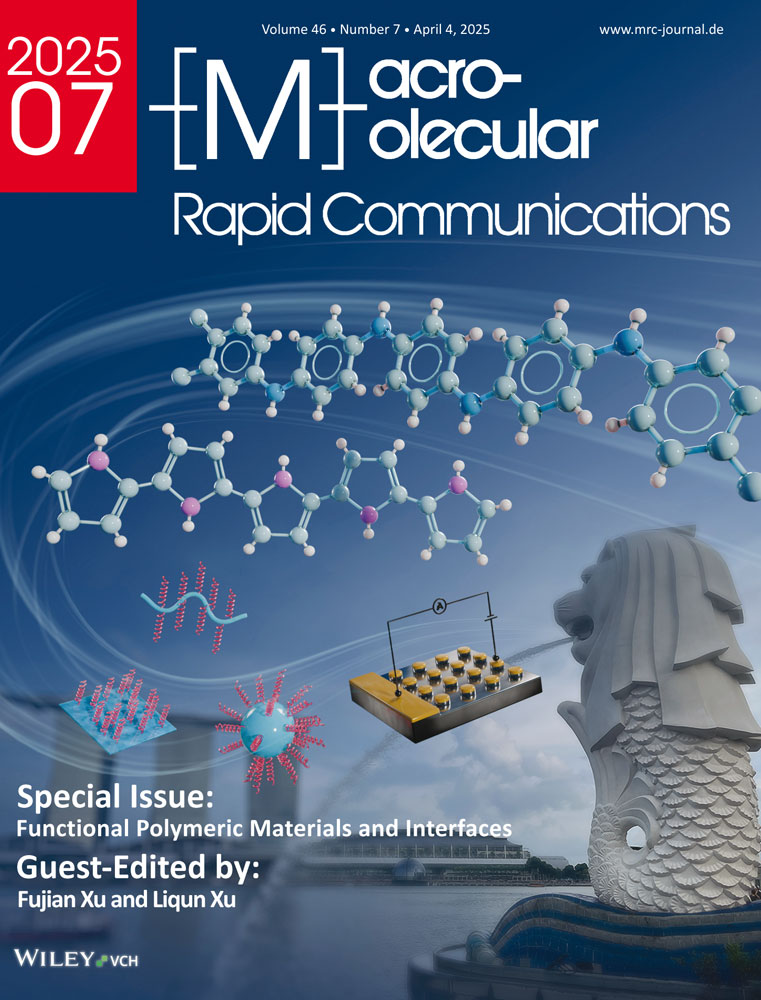Tough Self-Healing Materials via In Situ Growth of Zeolitic Imidazolate Framework-8 Nanocrystals in Polymers
Abstract
Construction of self-healing materials with improved mechanical performance is a great challenge. A strong and tough self-healing composite is fabricated via in situ growth of zeolitic imidazole framework-8 (ZIF-8) nanocrystals in imidazole-containing polymer networks. By adjusting the stoichiometric ratio of the zinc salt to 2-methylimidazole, composites with various mechanical performances are obtained. The existence of ZIF-8 nanocrystals via in situ growth in the polymer networks is confirmed by X-ray diffraction (XRD), transmission electron microscopy (TEM), and atomic force microscopy (AFM). The zinc–imidazole interactions between the ZIF-8 nanocrystals and the polymer are confirmed by attenuated total reflection Fourier transform infrared (ATR-FTIR) spectroscopy. The composites can repair themselves under mild conditions owing to dynamic zinc–imidazole interactions. The self-healing efficiency of composites can reach up to 91% under the condition of 60 °C for 48 h. In contrast to the pure zinc cation crosslinking system, the composite containing ZIF-8 nanocrystals prepared via in situ growth exhibited enhanced tensile strength and toughness by 43% and 100%, respectively. This study proves that incorporating the metal-organic frameworks (MOFs) materials into a self-healing system via an in situ growth strategy is highly promising for designing self-healing materials with improved mechanical performance.
Conflict of Interest
The authors declare no conflict of interest.
Open Research
Data Availability Statement
The data that support the findings of this study are available from the corresponding author upon reasonable request.




